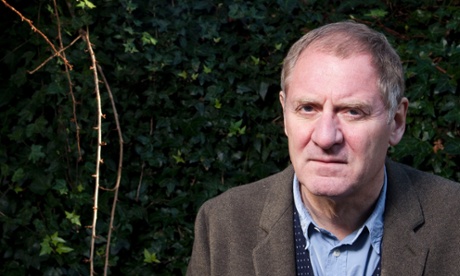
According to Molesworth, “there is only one piece of peotry in the english language”. It’s Tennyson’s The Brook, and Geoffrey Willans’ schoolboy recites, delightfully: “i come from haunts of coot and hern / i make a sudden sally / and-er-hem-er-hem-the fern / to bicker down a valley”. “Even advanced english masters set The Brook they sa it is quaint dated gejeune etc but really they are all in leag with parents who can all recite it. And do if given half a chance,” Molesworth tells us.
I love the thought of scads of parents declaiming “men may come and men may go, / But I go on for ever”. Because, and I’ve said it before, poetry by heart isn’t something I’m great at. Since I made that admission four years ago, I’ve committed a few more to memory, starting small, with some William Carlos Williams, red wheelbarrows and plums, having a baby and drinking down Plath’s You’re, trying to expand my Gerard Manley Hopkins’ repertoire beyond Spring and Fall. Small, horribly small, but definite, steps.
Which is why I love the sound of Cambridge University’s upcoming poetry and memory survey, in which academics are, over the next year, going to find out what poetry is stored in our nation’s memory, and what it means to the individuals who remember it. They’ve no less than Andrew Motion as a project adviser, saying that “the poems we commit to memory stay with us for ever, and grow as we grow”.
“Had we been doing this research a hundred or even 50 years ago, the results would doubtless have been more predictable. Up until 1944, the memorisation and recitation of poetry was prescribed on the school curriculum, and children memorised certain ‘staple poems’,” says the team. “But in the second half of the century, poetry learning became deeply unfashionable within education – the baby thrown out with the rote-learning bathwater. And yet, many people do still know a poem or two, for all sorts of reasons. So that’s what we’d like to know: what are the poems that live in people’s memories, at this moment, in October 2014?”
The important thing, they say, is that they’re “emphatically not looking for GCSE English answers, or an analysis of what the poem is ‘supposed to be about’. Rather, we want to know what significance this particular poem holds for you. This might be something to do with the meaning, but it could also be to do with the sound. It may be that there’s one line which is particularly special.”
It starts on 2 October, National Poetry Day: I’ll be taking part, and I think I’ll probably be going for Spring and Fall, because both in its subject matter and when I first heard it, it’s wrapped up inextricably in my own leave-taking of worlds of wanwood leafmeal. And in Jill Paton Walsh’s Goldengrove, one of my favourite books from my childhood.
How about you? What are the poems you remember, and why? I hope you’ll be sharing them with the survey, too, and joining in with #thinkofapoem on social media. The one that is echoing around my head at the moment is And Yet the Books, by Czeslaw Milosz, thanks to a friend’s recent posting on Facebook. I’ll have a stab at learning it, I think. #thinkofapoem. What’s yours? Let us know on the thread below and do record yourself reciting it and share it with us by clicking on the blue ‘contribute’ button – we will publish a selection of the best on National Poetry Day.

